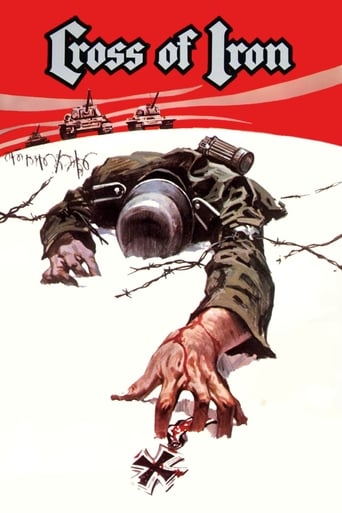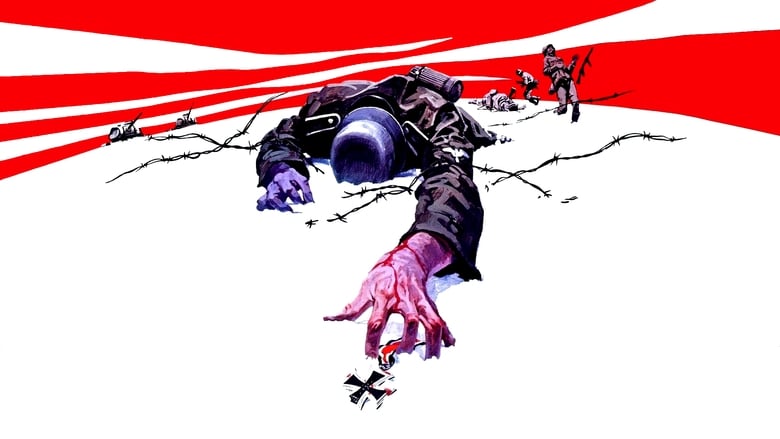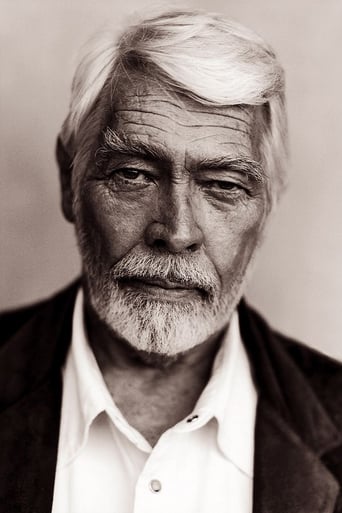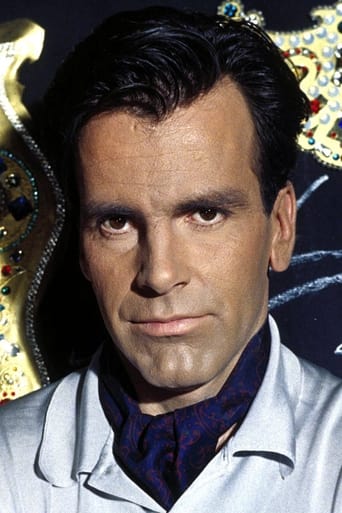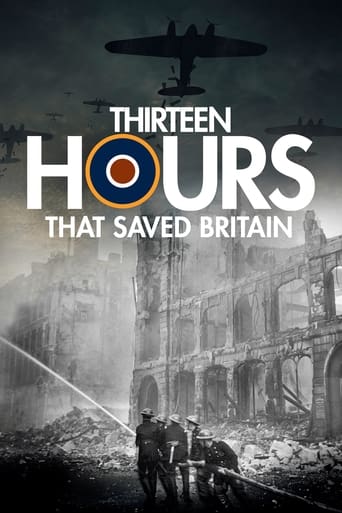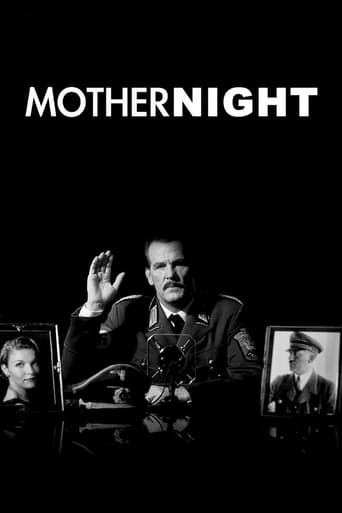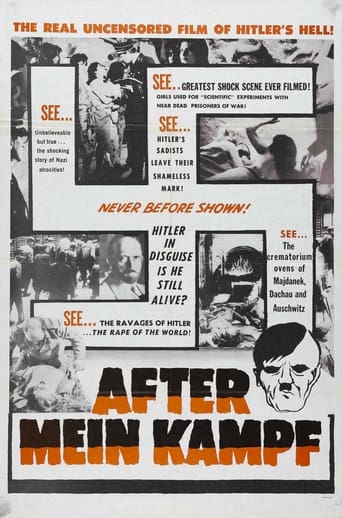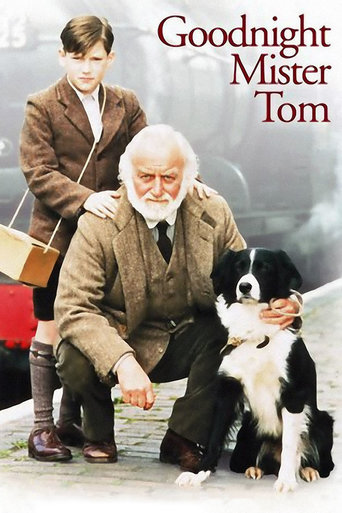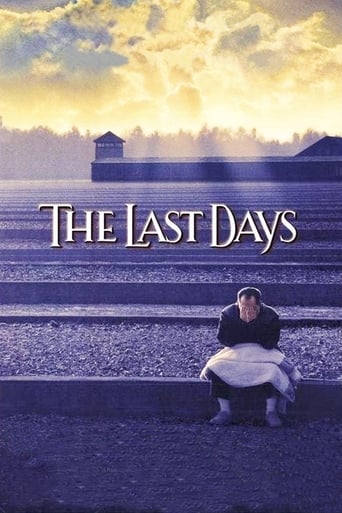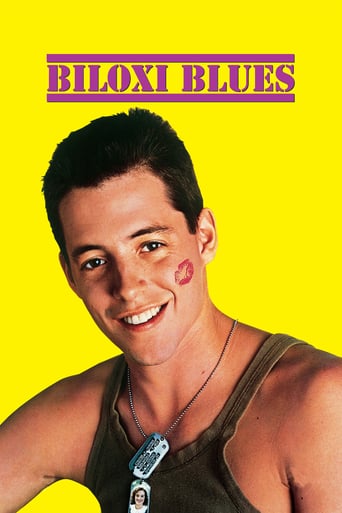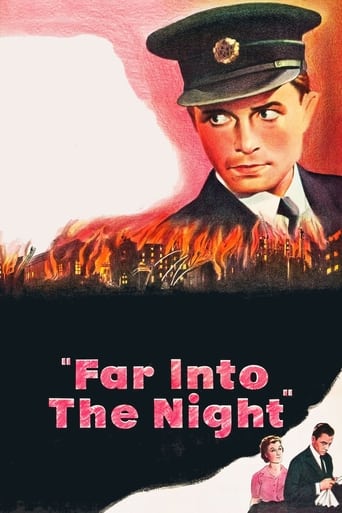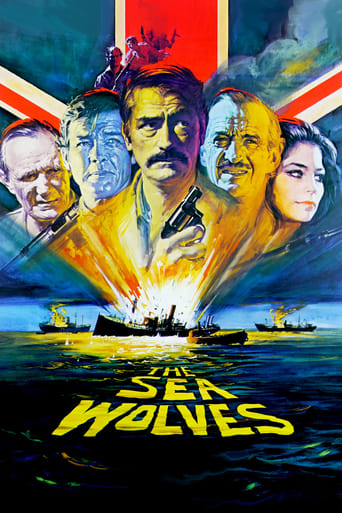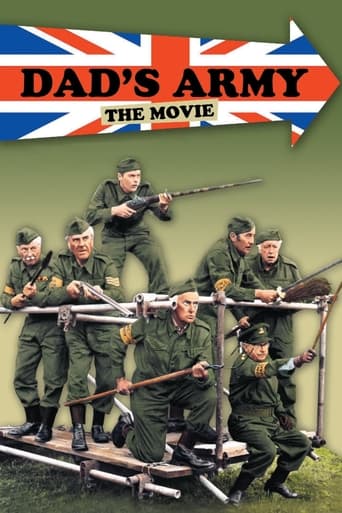Cross of Iron (1977)
It is 1943, and the German army—ravaged and demoralised—is hastily retreating from the Russian front. In the midst of the madness, conflict brews between the aristocratic yet ultimately pusillanimous Captain Stransky and the courageous Corporal Steiner. Stransky is the only man who believes that the Third Reich is still vastly superior to the Russian army. However, within his pompous persona lies a quivering coward who longs for the Iron Cross so that he can return to Berlin a hero. Steiner, on the other hand is cynical, defiantly non-conformist and more concerned with the safety of his own men rather than the horde of military decorations offered to him by his superiors.
Watch Trailer
Cast
Similar titles
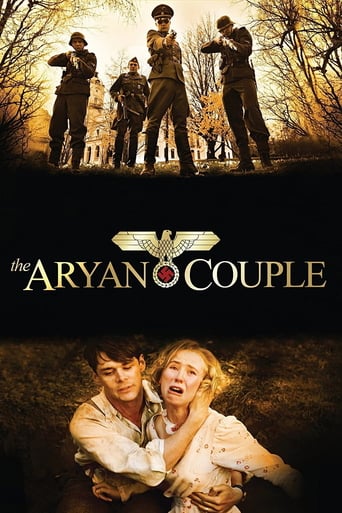
Reviews
Best movie ever!
Absolutely Fantastic
Although it has its amusing moments, in eneral the plot does not convince.
Strong acting helps the film overcome an uncertain premise and create characters that hold our attention absolutely.
Based on the novel of the same name, this film is one of Peckinpah's best films. The ambition of Peckinpah's efforts are shown by the large scale of the events shown, and you truly get a feel of the story he was trying to tell. But something gets lost in the translation from book to film, and this film is at times too subtle or too overt, with a lot of the subtleties of the characters getting lost in the process. Despite a fine cast, with many first rate actors, the movie aims high but just doesn't quite achieve the scope Peckinpah was going for.And what a cast it is, too. Including James Coburn, James Mason and Maximilian Schell, the chemistry between them proves to be one of the best parts of this movie. Coburn plays Sergeant Steiner, a man too long in the war and too jaded to be false in any way. His superior Captain Stransky (Schell) needs Steiner's help to vouch for him so he can get the Iron Cross medal he is obsessed with getting. Schell will go to any lengths to get the medal, and tries to convince Steiner to vouch for him regarding a battlefield event (that didn't happen the way Stransky said it did). Steiner, predictably, dislikes officers almost as much as he hates the war, and refuses to do it. At one point Steiner throws his own Iron Cross on Stansky's desk and blurts, "Here, take it!" but nothing less then a real Iron Cross will do. The two continue to be in conflict for the rest of the film, all done in a very murky subplot that is sometimes unclear - the main issue I have with this movie. This was obviously a herculean effort by Peckinpah, and despite the muddy subplot that the film centers around, the battle scenes are fairly well done. Filmed partly in Croatia - that was still firmly in the Communist Bloc at the time of filming - the battle scenes feature genuine T-34 tanks along with dozens of extras during the Russian assault scenes and give the movie a real touch of authenticity. Set in spring 1943 - one of the rare lulls in the Ostfront between Stalingrad and the colossal battle at Kursk - it does manage to give a sense of the overwhelming enemy facing the German Wehrmacht during all stages of the war. There's enough great battle scenes here to distract from the, somewhat weak subplot and to show what war in the mud of Russia might have been like. Unfortunately the movie has a relatively weak ending - Steiner and Stransky are still alive but still battling on at the end. So the ultimate fate of the two strongest characters is left untold.All in all a great war movie, if a little frustrating to interpret while viewing.
When it came to Sam Peckinpah as a filmmaker, there was never an easy way of doing things, and a penchant for doing nothing the way Hollywood wanted. When he wasn't battling with studio chiefs and producers (which was a great deal of the time), he was frequently battling with critics who liked to nail him for his graphic violence and the complex approach he took to that violence, especially with films like THE WILD BUNCH and STRAW DOGS. It earned him the fairly distorting misnomer "Bloody Sam", which didn't really begin to explain the depth for which he cared about filmic art. And probably no other film of the fourteen he made was quite as infuriating as his 1977 World War II film CROSS OF IRON.Based on the novel of the same name by Willi Heinrich, the film is set along the Eastern Front of World War II, where in 1943 the battle between Stalin's Soviet forces and Hitler's German forces was becoming the personification of a meat grinder war. James Coburn, a Peckinpah favorite, gives another extremely probing performance as Sergeant Rolf Steiner, the leader of a vastly outmanned and outgunned platoon of German foot soldiers, who learns that his particular squad is about to be taken over by the very autocratic Captain Hauptmann Stransky (Maximillian Schell). For reasons that are quite selfish, namely the desire to get the German equivalent of the Purple Heart or Bronze Star, the Iron Cross, Schell forces Coburn to go into battle against a regiment of the Soviet army that literally cuts their platoon to pieces. As is par for the course in a Peckinpah film, we have two men in conflict with one another, both practically two sides of the same German coin, only one of them (Coburn) cares more for the lives of his men, and Schell just cares about getting that damned Iron Cross, and is so blatant about that ambition that he tells Coburn, "I will show you how a true Prussian fights." Coburn then retorts, quite rightly, "Then I will show you where the Iron crosses grow." It is not too surprising that the battle and action scenes in CROSS OF IRON are distinct from every other filmmaker that has ever lived; we are, after all, talking about Sam Peckinpah here. And he certainly doesn't make things easy; besides the carnage that he shows, he is as precise as ever at showing how the horrors of war affect the men that have to fight it, and how alienated and anesthetized they can be to death and killing on a mass scale we hope never to revisit. Coburn, of course, is brilliant in his role as the humane Steiner whose only concern is for the men he leads and not for the officer corps, especially not the vainglorious Schell (another fine performance). Both actors are supported by a great cast that includes, among others, Senta Berger (who played the love interest in the director's 1965 Civil War western MAJOR DUNDEE), David Warner, and James Mason.Unfortunately, CROSS OF IRON failed to find much of an audience outside of continental Europe because Peckinpah depicted World War II in such a politically incorrect way: from the point-of-view of German foot soldiers, as opposed to Americans and/or Brits, something that clearly seemed to alienate people just wanting to see a standard-issue war film where good guys and bad guys are clearly distinguishable. But that's John Wayne theatrics of the worst kind; and in real war, the line between good and bad is not only a thin one but it's a line that is also frequently crossed. In any case, Coburn, Schell, Mason, Warner, and their fellow German soldiers are frontline soldiers in the heat of battle, not the Nazi commandants who gassed six million Jews with impunity in the concentration camps. They may be wearing the uniform of a country and a leader with a (to say the least) unjust cause, but that by itself doesn't diminish the reality of the horrors they experience, and in that respect it makes them no different from the Americans, the British, or even the Soviets.Helped immensely by a crew that includes the great British cinematographer John Coquillon, who had already worked with Peckinpah on STRAW DOGS and PAT GARRETT AND BILLY THE KID, CROSS OF IRON is one of those films that ranks with the best films about any war ever made, whether it's about World War I (ALL QUIET ON THE WESTERN FRONT; PATHS OF GLORY), World War II (SAVING PRIVATE RYAN), or Vietnam (BORN ON THE FOURTH OF JULY; PLATOON; FULL METAL JACKET). Even with a few flaws in it, this is a movie that needs to be restored to its full original, and extremely disturbing, glory and power, especially for how it adds to Peckinpah's reputation as an ultimate seeker of the truth of Man's contradictions, no matter how disturbing or politically incorrect he is in doing so.
Our story begins on the punishing wasteland of the eastern front in 1943. The gallant but disillusioned Sgt. Steiner(James Coburn)has been awarded the coveted iron cross for bravery in combat. Steiner's new commanding officer Capt. Stransky(Maximillian Schell)a supercilious Prussian aristocrat, hungers for nothing more than personal glory and the chance to earn his own iron cross. It isn't long before a bitter contempt develops between the two men, as the jaded Steiner realises that Stransky is a dangerously deluded coward. With the red army pushing the Germans back, contempt turns to disgust after Stransky takes credit for the heroic actions of Steiner and his men and leaves them at the mercy of the Soviets.Steeped in deliciously morbid cynicism, Sam Peckinpah's only war movie captures military life on the hellish eastern front with unparalled skill. Deeply rooted in satire, never have I had the pleasure to enjoy an (anti)war movie so raw, so mesmerising, so flawless. The hauntingly dreamlike imagery does nothing short of dazzle and the poignant atmosphere of muddy trenches fills ones nostrils with the nauseating stench of war. As far as war movies go, Orson Welles said that Cross Of Iron was the greatest he had ever seen. I am inclined to agree, if it wasn't for stiff competition from classics like Patton, A Bridge Too Far or Attack!. The performances are nothing short of brilliant. James Coburn and Maximillian Schell dazzled in their portrays. The one and only James Mason was also on fine form as the war weary Colonel Brandt. A hoard of competent European talent also flex their acting muscles in supporting roles. With a flawless script, Cross Of Iron is just as much a study of class relations as it is a study of war. The battle of wits between the demoralised Steiner and the priggish Stransky is just as gripping as the physical battles between soldiers and tanks. Steiner is a man more loyal to his men than he is to his country. His only goal is to survive the carnage which surrounds him. Officers and medals mean nothing to him whatsoever, describing his iron cross as nothing more than "a worthless piece of metal". Stransky on the other hand, has his loyalties driven by an almost erotic obsession to win the iron cross. Like most members of the upper classes, he views war through rose tinted glasses, a trait which eventually leads to his undoing.The explosive but bizarre climax oozes with darkly comic humour. As a matter of fact, the entire movie does, although the black humour is at its greatest near the end of the movie. The film itself is a metaphor for insanity, with insanity shamelessly represented by the climax. The final 25 minutes make the writers seem as if they were high on crack, although the final sequence itself is just so beautiful in a darkly humorous, yet horrifying kind of way that it succeeds on every level!. Too amazing to spoil, no war movie you have ever seen or will see will end with a sting more piercing than Cross Of Iron. The movie boasts a handful of muscular battle scenes which see Peckinpah play his trump card. Anyone who has seen The Wild Bunch or Straw Dogs will know that I am talking about slow-motion!. The intercutting of slow-mo action with standard speed action heightens the tension here in a way more impressive than that of any other Peckinpah movie!. The camera techniques utilised include shakycam and tight close-ups. Monstrous explosions puncture the scenery as men brutally fight for their lives with the odd squib bursting(another Pekinpah speciality). I was also impressed to see real Soviet tanks put to terrifying use in a taut skirmish at a disused factory.Whilst totally surreal, Peckinpah's gorgeous nightmare will definitely leave a lasting bitter taste in your mouth. The lashes of black humour(which are occasionally hilarious in a cruel kind of way)and harrowing imagery will rock your world in one of the most severe portraits of war ever painted!. 10/10.
I had been aware of this film but it wasn't until recently I purchased it on DVD. Others have noted its similarities in some respects to Stalingrad, but I feel CoI is a superior film. The acting is sharper and we are presented with a range of characters all with different views and attitudes to why they are on the Eastern front, and what they hope to achieve be it glory, sanity or to just survive and get the hell out of there. All of the lead and support actors are very good in their roles, and it is possible this is Coburns best. The villain of the piece here of course is the vain glorious Prussian aristocrat who seeks the Iron Cross for purely personal yet family reasons. He needs to return home as the hero and patriarch and is quite happy to betray the ordinary soldier to obtain his lofty aims. Yet he hates the Nazi's and the 'little corporal and failed painter'. He clearly sees that regardless of how the war ends it will be his class that will eventually rule Germany. The Iron Cross will just be a trophy of his superiority. A good bookend to Stalingrad but IMHO a somewhat more satisfying film.
